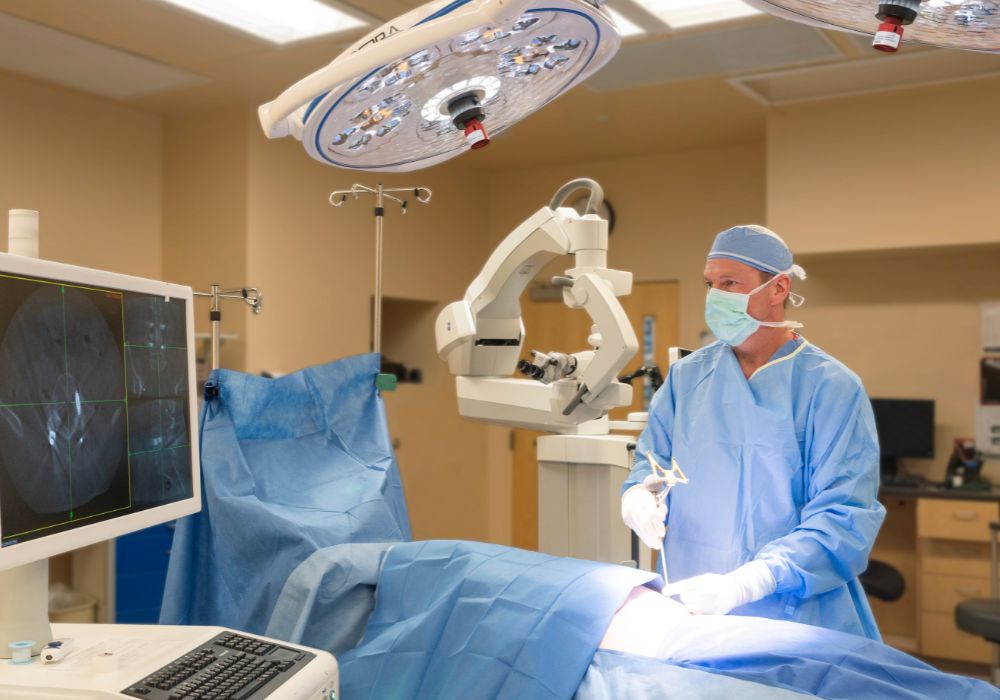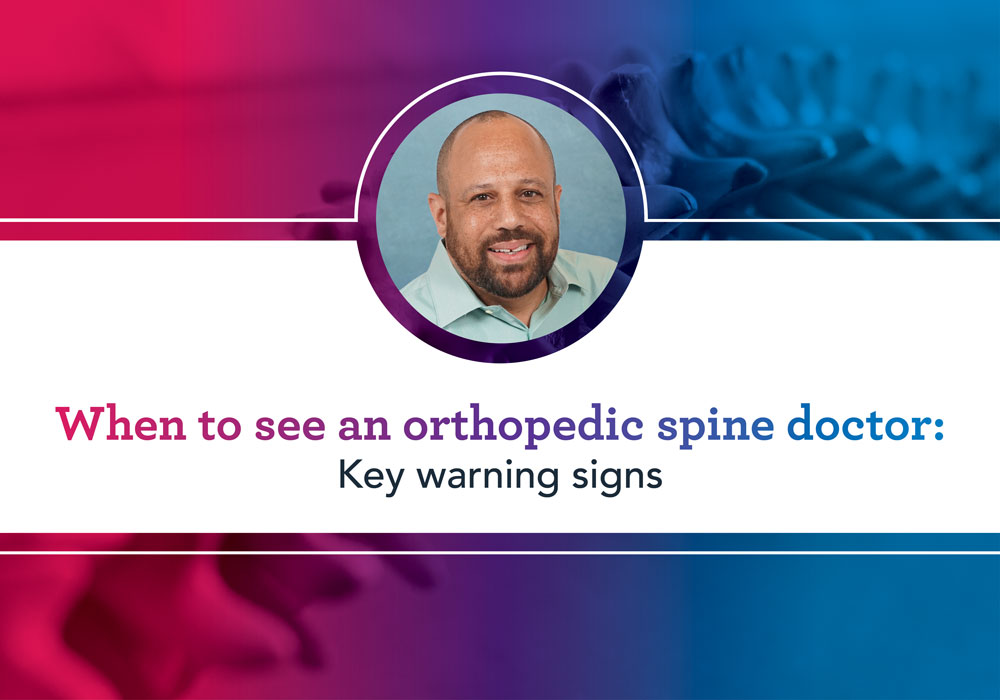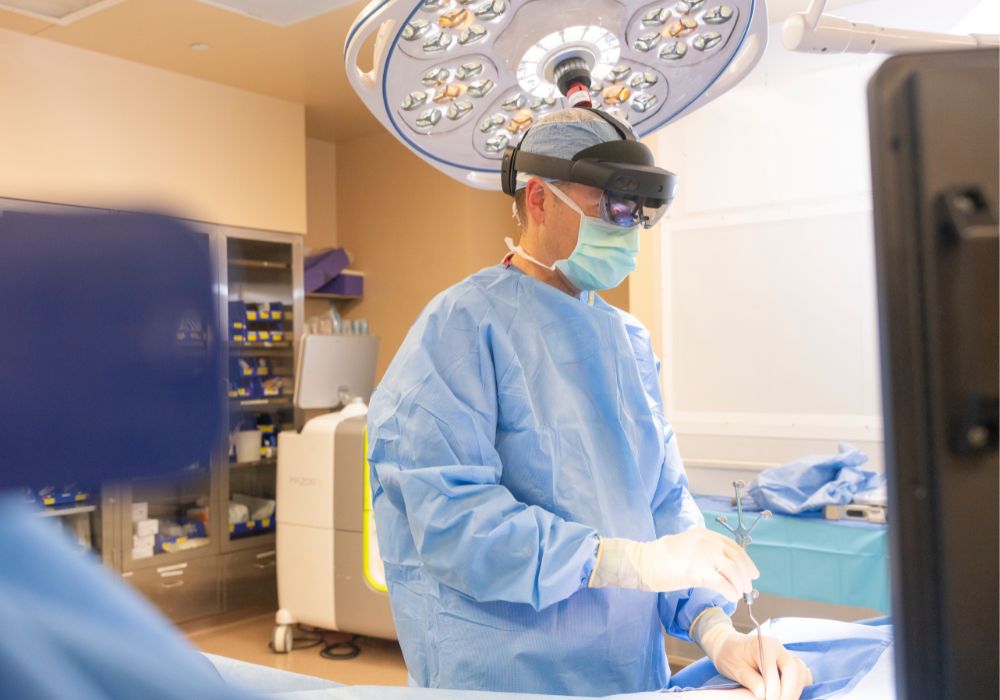You might be familiar with sciatica as a back condition, but did you know you can also experience hip pain from sciatica? It’s actually very common—and can be somewhat confusing for patients when seeking medical care for a hip problem.
In this blog article, you’ll learn what causes hip pain from sciatica, how it’s diagnosed and what an orthopedic specialist can do to help give you some relief.
Why does sciatica cause hip pain?
Many lower back problems that present as hip pain are caused by a herniated disc. Herniated discs typically occur from simple wear and tear due to aging and are common in patients between 30 and 50 years old.
When a disc herniates, the gel-like center of the disc protrudes into or through the disc’s outer lining. This herniated disc will sometimes press directly on the nerves in your spinal column, producing pain called sciatica.
Some other symptoms that often accompany hip pain from sciatica include:
- Pain that feels similar to a bad leg cramp
- Pain that is sharp
- Pain that heightens when you move, sneeze or cough
- Weakness, numbness or a tingling sensation down your leg
OrthoIndy spine surgeon, Dr. Kevin O’Neill, explains why a patient might feel hip pain from sciatica, even though it’s a condition of the spine.
“Most commonly, sciatic nerve pain runs down the back of the thigh and into the calf and foot, but it can also run down the front of the thigh,” Dr. O’Neill says.
“When this is the case, it can be confused with pain coming from the hip joint. Classically, pain from a hip joint problem is felt in the buttock and wrapping around to the groin, but can feel like it runs down the thigh.”
How is hip pain from sciatica diagnosed?
To determine if the symptoms you’re feeling are hip pain from sciatica or another condition, your doctor will ask you about your medical history and symptoms and do a physical examination.
They may also want to do X-rays and imaging of your hip and back to confirm their final diagnosis. Hip pain and back pain are often related, so your pain might be coming from both in some cases.
How do you relieve hip pain from sciatica?
In most cases, sciatica pain will get better over time with rest. But if symptoms continue, your doctor may recommend nonsurgical treatment options, including:
- Non-steroidal anti-inflammatory drugs (e.g., ibuprofen, aspirin or muscle relaxants)
- Heat or cold on your aching muscles
- Physical therapy (exercises and stretches for sciatica)
- Cortisone injections
If these nonsurgical treatments don’t relieve your back or hip pain from sciatica, back surgery for sciatica—called a laminotomy with discectomy—might be recommended. In a typical procedure, the surgeon removes the herniated disc to stop it from pressing on your nerve. In most cases, this will reduce or eliminate your pain.
After surgery, your doctor may recommend exercises or stretches to help strengthen your back. Most people can resume a normal lifestyle after recovery from surgery for sciatica.
Schedule an appointment
If you’re suffering from what you think might be hip pain from sciatica or another condition, our team can help. Schedule online or call us to set up an appointment with one of our orthopedic specialists
Learn more about the conditions that could be causing you pain, like degenerative disc disease and sciatica, and find out if treatments like spine surgery for sciatica are right for you.
If your injury or condition is recent, you can walk right into one of our OrthoIndy Urgent Care locations for immediate care. No referral is needed for rehabilitation and physical therapy to see one of our physical therapists.





